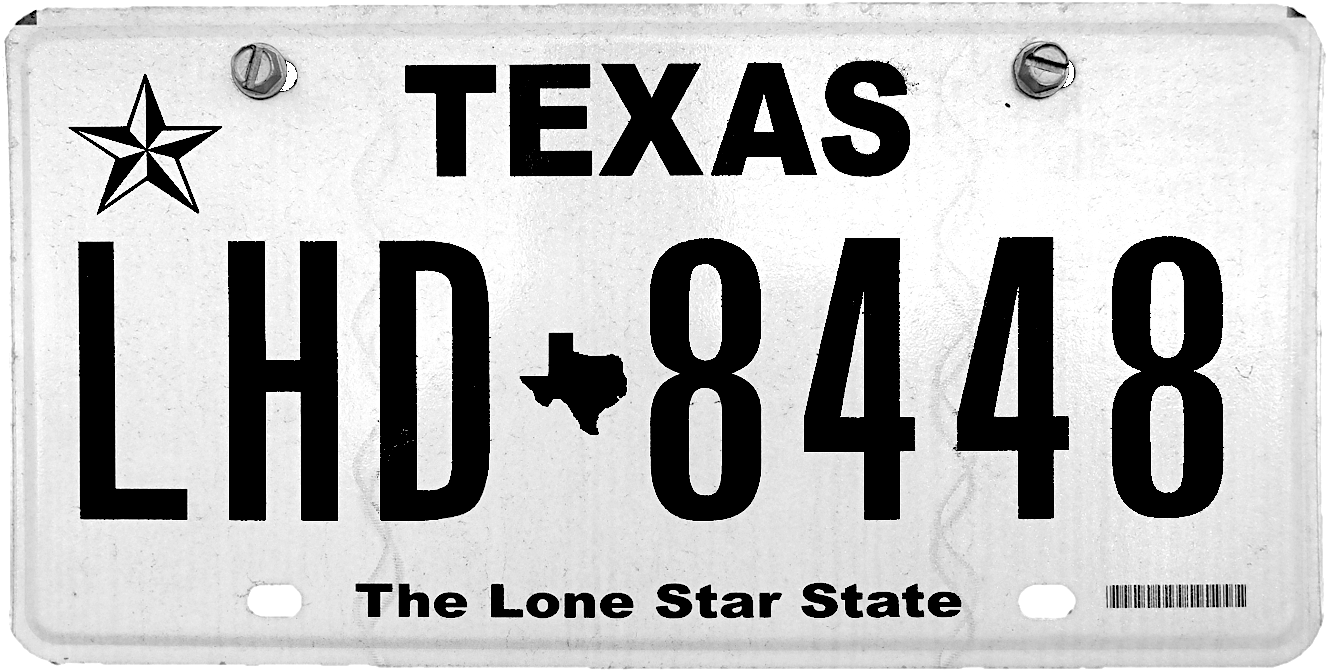Texas law enforcement agencies utilize Texas license plate lookups to enhance public safety by tracking stolen vehicles and solving crimes more efficiently. This practice helps keep communities safer. Interested in how this affects your car-buying experience? Read on to discover how license plate checks contribute to keeping you informed and secure.
Lone Star Plates: A Brief History

Texas license plates have a rich history that reflects the state’s unique culture, identity, and technological advancements. From their inception in the early 1900s to the present day, Texas license plates underwent significant transformations in design, materials, and features, each marking a distinct era in the state’s automotive history. This evolution has been shaped by various factors such as changes in state regulations, advancements in manufacturing technology, and shifts in cultural trends.
Notable Designs and Changes in Materials
Over the decades, Texas license plates have showcased a variety of designs, each with its own distinctive style and significance. Early plates were simple and utilitarian, often made of leather or metal with hand-painted numbers. As production methods advanced, plates began to feature more durable materials such as steel and aluminum, along with more intricate and standardized designs.
One of the most iconic changes occurred in the 1950s when Texas introduced its first plates with reflective materials, boosting visibility and safety. The Lone Star emblem, a symbol of Texas pride, became a prominent feature on plates during this time, reinforcing the state’s identity on the road. Over the years, special edition plates have been issued to commemorate events, celebrate Texas heritage, and support various causes, each contributing to the rich tapestry of Texas license plate history.

License Plate Formats in Texas
Texas license plates play a vital role in vehicle registration, functioning as identification tools and reflecting the state’s unique character. The Texas Department of Motor Vehicles (TxDMV) is responsible for issuing official license plates, making sure they meet state standards and regulations.
-
- Standard Plates: The common format is designed for easy recognition and a large number of unique combinations.
- Specialty Plates: Designed to express interests, affiliations, or support for various causes
- Personalized Plates: Allow for custom messages or combinations chosen by the vehicle owner
Other Common Plates of Interests
-
- Military Plates: Include a designation of military branch or service
- University Plates: Feature logos or names of Texas universities
- Sports Plates: May include team logos or mascots
How Texans Can Use License Plate Lookup Services
For many Texans, especially those new to the used car market, a license plate lookup can protect against unexpected problems by revealing important details about a vehicle’s history, including any potential issues or past accidents.
1. Determine Your Needs
Identify what information you need. Are you buying a used vehicle, checking a vehicle’s history, or verifying ownership?
2. Choose a Good License Plate Search Service
Select a reliable service. Options include free services, like state-specific DMV websites, and paid services that offer more comprehensive car reports.
3. Gather Necessary Information
Obtain the license plate number of the vehicle you’re interested in. Some services may also require a vehicle identification number (VIN), while others license plate number.
4. Access the Vehicle Tag Lookup Service
Visit the website of the chosen service. For Texas, popular options include the Texas Department of Motor Vehicles (TxDMV) or private services like VinCheckPro.
5. Input the License Plate Number
Enter the license plate number into the search field. Make sure you enter the number correctly to avoid errors.
6. Review the Results
Examine the report provided by the service. It may include details such as the vehicle’s registration history, accident reports, ownership records, and more.
7. Take Action Based on Findings
Use the information to make informed decisions. For buyers, this might mean negotiating the price or deciding whether to proceed with the car sale. For sellers, ensure that the vehicle’s history is transparent.
Benefits for Car Buyers, Sellers, and Vehicle Owners
Buyers
- Verify Vehicle History: Confirm if the vehicle has been in accidents, has a salvage title, or has other issues.
- Check Ownership Records: Ensure the seller is the rightful owner and that the vehicle is not stolen.
- Avoid Fraud: Detect any discrepancies in the vehicle’s history before concluding a car deal.
Sellers
- Increase Transparency: Provide potential buyers with a complete history report to build trust.
- Justify Your Price: Use intensive and extensive records to substantiate the asking price of the vehicle.
Vehicle Owners
- Monitor Registration Status: Keep track of your vehicle’s registration and ensure it is current.
- Stay Informed About Your Vehicle: Regularly check for any updates or changes in the vehicle’s status.
Legal Considerations and Privacy Issues

Legal Use
- Be sure that using car plate lookup services complies with state and federal laws, including data protection regulations.
- In Texas, as long as the use of the information is lawful and non-commercial, using plate number lookup services is generally permitted.
Privacy Concerns
- Be cautious of services that may misuse personal information or share it without consent.
- Avoid services that request unnecessary personal information or seem suspicious.
Data Security
- Choose services with robust security measures to protect your personal data.
- Verify the legitimacy of the service to avoid scams or unauthorized data collection.